Is it better to say katoey or perhaps it is more appropriate to say ladyboy when speaking of transgender men in Thailand? This is one of the opening questions presented by Marie-Therese Claes, Ph.D. from Belgium, in her presentation to the Pattaya City Expats Club meeting on Sunday, March 12. She is a professor and director of the International Executive MBA Program at Louvain School of Management, University of Louvain. She is also a professor at the Asian Institute of Technology in Bangkok.
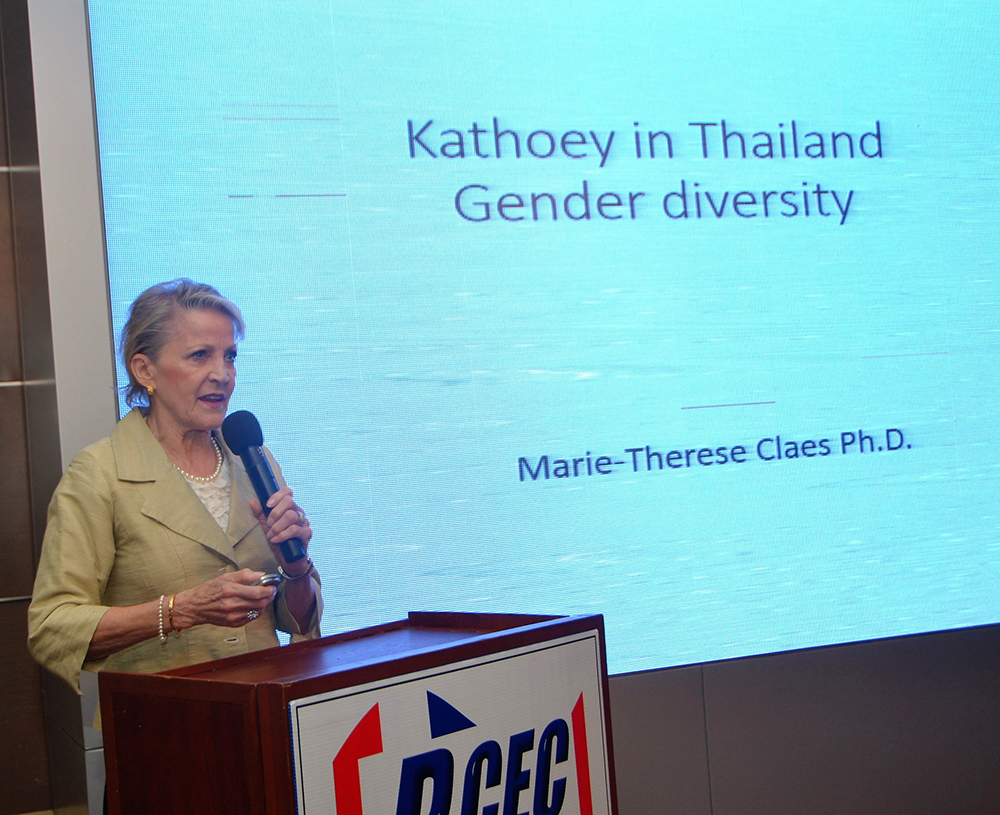
There are actually several terms with subtle variations for the transgender males in Thailand. “Ladyboy” is perhaps the most common term for persons that speak English as a native language, but “katoey” comes in at a close second. Other, more Thai language terms include, “sao praped song”, translated as a type-2 lady or “ying kam pedt”, usually meaning a cross gender woman, then there is a more recent term, “phuying kham phet”, taken from a 2010 TV show, meaning transsexual woman. None of the five terms are more or less pejorative; however, most prefer the term “ladyboy” if coming from a native English speaker and they prefer to be referred to as a lady.
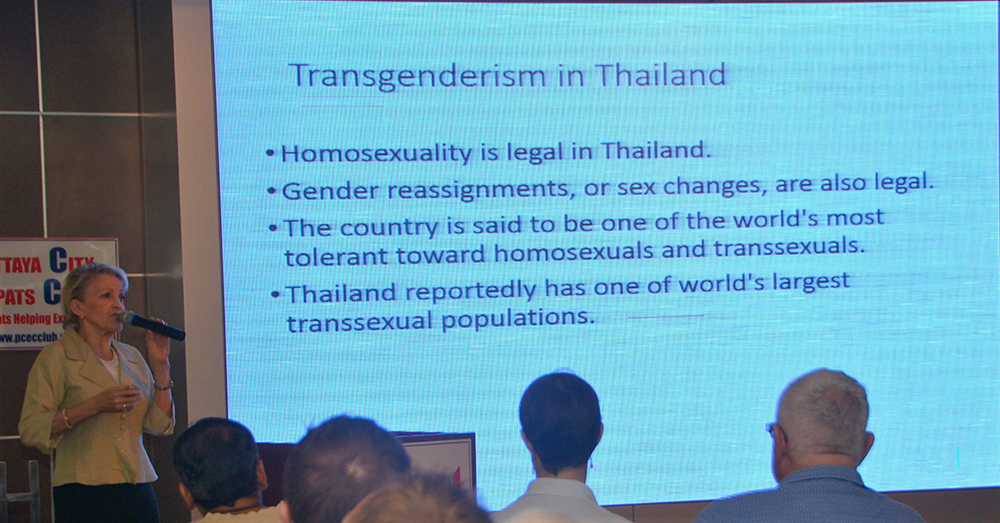
Dr. Claes outlined a specific, well known case, featured in a Thai TV show called “Heart to Heart, Hand in Hand”. The show followed a ladyboy applying for a job with a European firm that had been in Thailand since 2006. She passed the recruitment process and the Human Resources manager offered her the job as a “Sales Coordinator”. However, her hiring was rejected by headquarters, in Europe, when they discovered that she had been born a male. She was given a one-month salary as compensation.
The case was tried primarily in the court of public opinion and was one of the first such cases in Thailand. For the most part, the Thai people found the rejection difficult to understand and did not agree with the company findings. Thai law did not support transgender discrimination at the time and she was not able to get a favorable resolution. It was noted that the company is still looking for a Sales Coordinator.
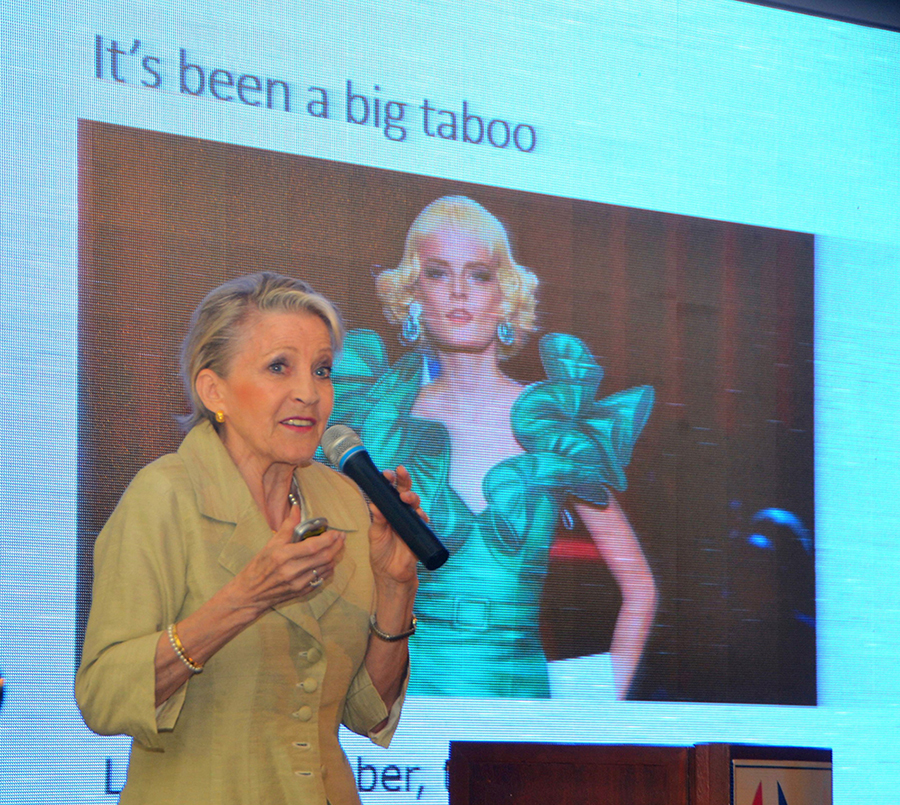
The Thai government does not allow a male to female, transgender person, to change their gender on their government ID card or passport, which creates confusion, embarrassment, and unwanted scrutiny at border crossings and at immigration checkpoints. Thailand also prohibits same sex marriage but if a ladyboy does go through a wedding ceremony and the partner dies, the deceased’s family receives any and all assets.
Homosexuality is legal in Thailand and gender reassignments are also legal. Thai culture is said to be one of the world’s most tolerant towards homosexuals and transsexuals. Ladyboys can be found in all walks of life and occupations throughout Thailand and often appear in movies and on television.
Thailand is roughly 95% Buddhist and unlike the Christian religion, Buddhists cannot point to a specific religious law or teaching forbidding homosexuality, transsexuals or gay marriage. One of the fundamental teachings of Buddhism is tolerance of those who act differently or hold different views. Transsexuals are integrated into everyday life and physical or verbal assault is extremely rare.
Buddhism teaches that all things lack permanence, even to the extent that there is no soul. What is reborn is not a soul, but rather the result of one’s lives, current and previous. The ladyboy’s condition is often viewed as her fate; a Karmic consequence or punishment for a previous life and therefore, they should be pitied.
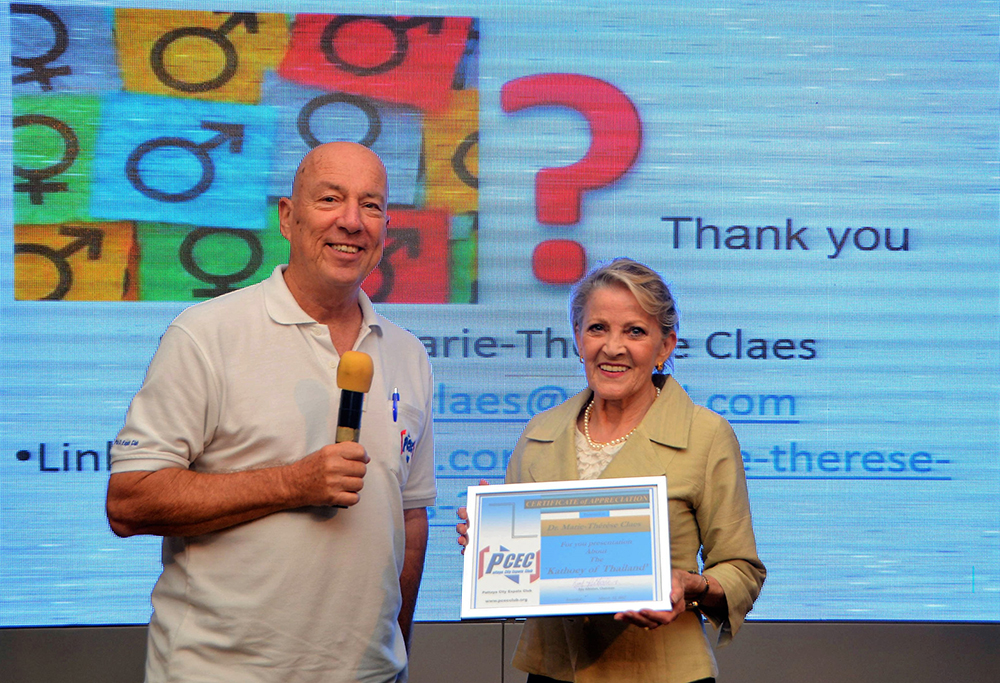
In more recent developments, the Department of Mental Health removed homosexuality from its list of mental disorders in 2002. The Thai military announced in 2005 that it would discontinue its practice of dismissing transsexual and gay recruits for having a “severe mental disorder” and changed the term to having an “illness that cannot be cured in thirty days”. The 2007 Constitution indicates Thai people regardless of ethnicity, sex or religion shall receive equal protection. Then in 2015 a “Gender Equality Act” was passed. However, some discrimination remains and a well-known transgender campaigner, Suttirat Simsiriwong, announced that “Tolerance is not the same thing as acceptance”.
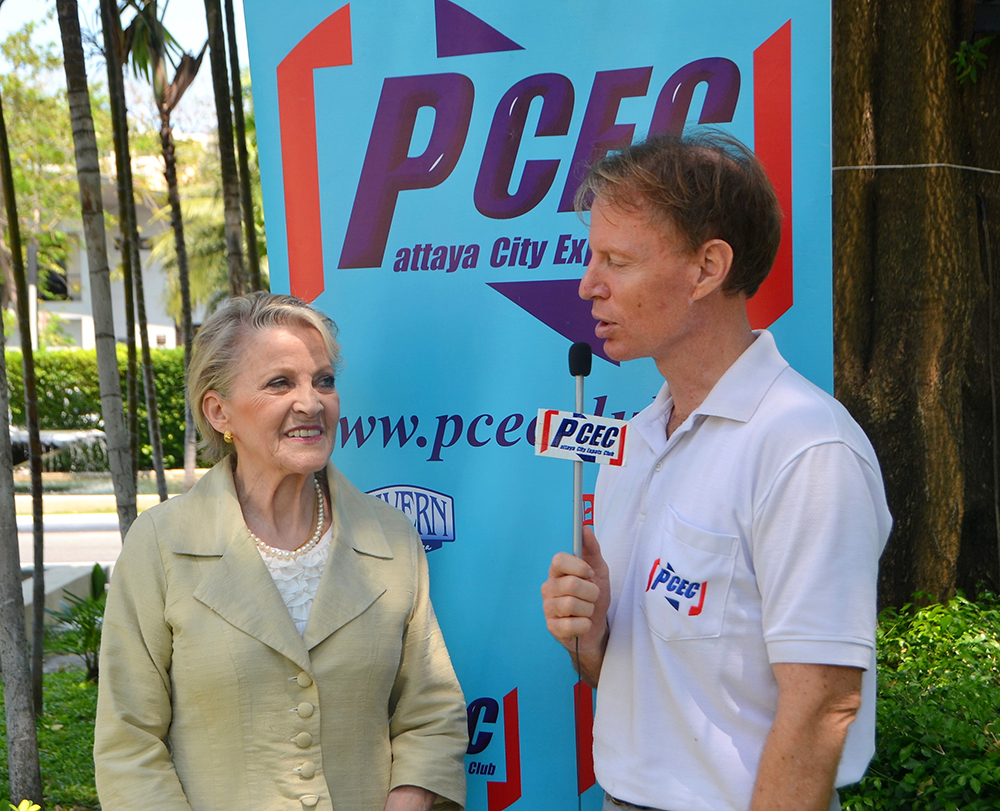
The doctor went on to point out the “openness” of the ladyboy community, including such diverse venues as the Miss International Queen to the famous Muay Thai kickboxer, Nong Toom. She also pointed out changes throughout the world, giving the example of the Supreme Court of India recognizing a third gender as a class entitled to reservation in education and jobs, stating that the third gender is not a social or medical issue but a human rights issue.
She indicates the next challenge is “Intersex”, with up to 1.7% of the world’s population having this condition. This involves a person born with internal testes and without a uterus or ovaries. The technical term is androgen insensitivity syndrome, which means a person is genetically male but the external appearance of their genitals may be female or somewhere between male and female. She believes this will follow a similar path as the transgender issue.
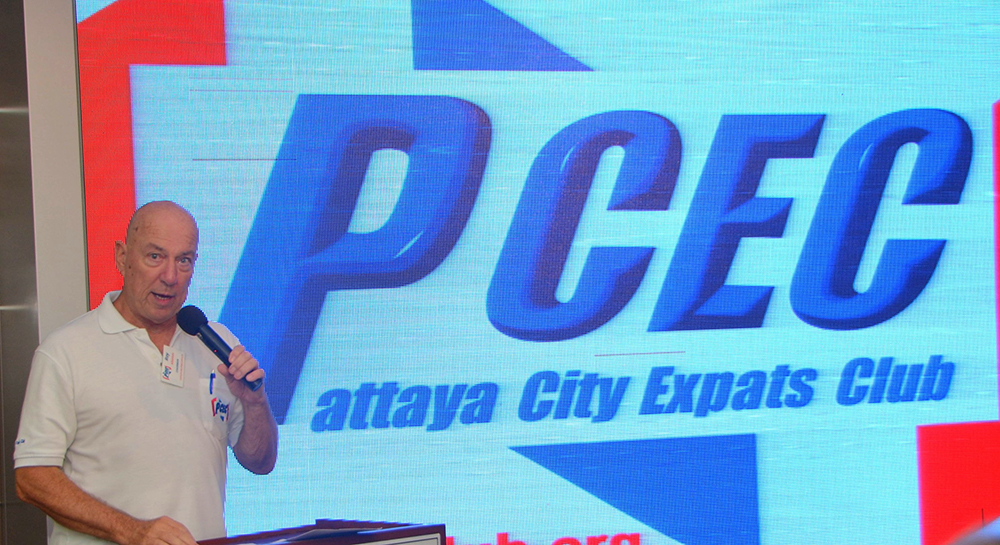
The presentation was well received and led to a lively question and answer period which was followed by an update of current events and activities and the Open Forum, where questions are asked and answered or comments made about Expat living in Pattaya.
For more information about the PCEC, visit their website at www.pcec.club.




